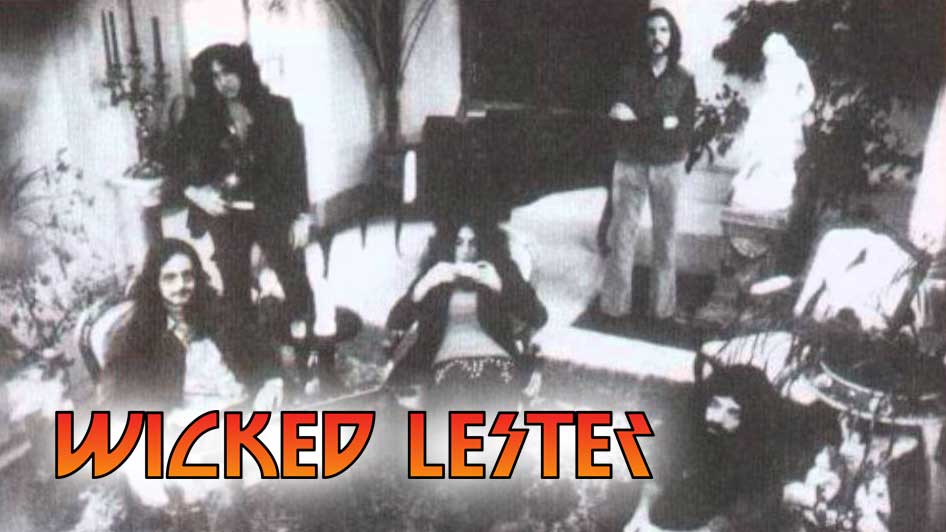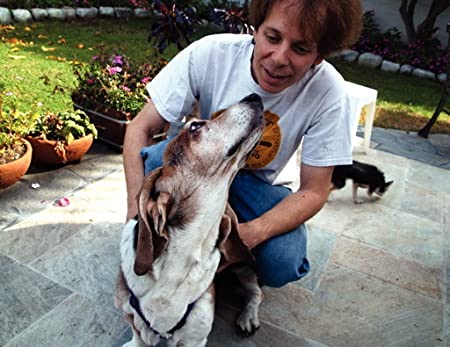In 1971, Kiss weren’t even a twinkle in the eyes of Gene Simmons and Paul Stanley. Back then they were just another pair of struggling New York musicians trying to pay the bills – albeit musicians with more ambition than most. Not content with churning out covers in local clubs for chump change, Simmons and Stanley were dead-set on rock stardom from the off. And the sooner it came, the better.
The vehicle they hoped would get there was Wicked Lester, a five-piece featuring Simmons and Stanley alongside guitarist Steve Coronel, keyboard player Brooke Ostender and drummer Tony Zarella. The band were a long way from Kiss’s larger-than-life approach – rather, they sounded like an unlikely cross between The Beatles and the Nitty Gritty Dirt Band.
Wicked Lester rarely performed live. Instead they focused their energies on getting a record deal. One early convert was Ron Johnsen, house producer at Electric Lady Studios, who dropped by the band’s Chinatown loft to watch them rehearse. Impressed, he took the band under his wing to make an album.
“The idea was to bring in all of our favourite influences and marry them into a direction based on the new songs,” recalls Steve Coronel. “Free, Buffalo Springfield, The Move and The Beatles.”
There was one problem. Wicked Lester didn’t have the money to hire out the studio themselves.
“We were literally going into Electric Lady when there was free time,” Stanley says. “Weeks could go by, and then we might go in for 36 hours straight.” In the studio, Simmons and Stanley took a back seat.
“We were at a point in our careers where we were happy to just go in and record,” Stanley admits. “We were good boys. We did everything that the producer told us.”
They made slow progress. It took a year to record the album, though it did mean they crossed paths with several artists who were also recording at Electric Lady, including Jeff Beck, Stevie Wonder and Stephen Stills (the latter laid down a solo for a Wicked Lester song, Sweet Ophelia, though the band decided it didn’t pass muster and discarded it).
The finished album was a stylistic Frankenstein’s monster, touching on baroque pop (Keep Me Waiting), folk (Molly), prog rock (an early version of future Kiss staple She, featuring Jethro Tull-esque flutes), and even the odd track that wouldn’t have sounded out of place on the Studio 54 dancefloor a few years later (Stanley’s Love Her All I Can, also revisited by Kiss).
It also drew heavily on material by outside writers, including Sweet Ophelia and Too Many Mondays by Brill Building songwriter Barry Mann, plus a cover of obscure Hollies track We Wanna Shout (its ‘We wanna shout it out loud!’ refrain would be recycled on Shout It Out Loud, on 1976’s Destroyer).
“It was done over such a long period that if a hit record had a sitar on it we put a sitar on a song, So we wound up with an album with no focus,” says Stanley of the mish-mash approach.
The band had already signed a deal with Epic Records on the back of a handful of songs. But on hearing the finished album, the label decided not to release the record after their head of A&R, Don Ellis, said he “just didn’t get it”. Simmons and Stanley took the hint and pulled the plug on Wicked Lester. With hindsight, it was a fortuitous decision.
“Paul and I weren’t happy with the record,” says Simmons. “It had a West Coast American hippie sound. We looked at each other and decided to form a new group, which was Kiss.”
Fifty years on, the Wicked Lester album remains officially unreleased. Epic planned to put it out in 1977 to capitalise on Kiss’s popularity, but the band got word and bought the album back from the label. In 2001, three tracks (Keep Me Waiting, She and Love Her All I Can) appeared on the five-disc archive collection The Box Set.
Inevitably, though, a bootleg has been in circulation for years. The Original Wicked Lester Sessions lacks the flashbomb power of Kiss, but it’s an enjoyable listen, and one that shows off the versatility of Simmons and Stanley when it comes to more sophisticated material. But there are no plans to release it properly – after 50 years of Superman, it would be like meeting Clark Kent.
“It’s not that I’m embarrassed by it,” says Stanley. “You let something pass for long enough, and time goes by and you can kind of chuckle at it.”

